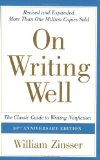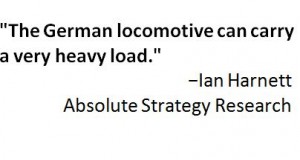 “I can’t get a job because I don’t have a book of business.”
“I can’t get a job because I don’t have a book of business.”
I’ve heard many CFA charterholders in the field of wealth management say their career prospects are limited by their lack of clients who will follow them to a new employer. If you’re in this fix, I have some suggestions for you, thanks to a lively discussion on the CFA Institute’s LinkedIn Group. I’ve quoted only LinkedIn Group members who gave me their permission.
The wealth manager’s dilemma
Sometimes your technical skills aren’t enough to attract potential employers, especially now.
“When the times are good, the industry will place more value on the technical skills because of more demand for labor. When the times are bad, the industry will place more value on soft skills because of more demand for assets to manage in order to pay for labor,” says James H. Barker, Jr., CFA, managing director of Haynes Barker Investment Management in Tennessee.
The skills necessary to earn your CFA charter and to manage money for individuals and families won’t build your client base. At least not overnight. So what can you do if you need a job, but lack that all-important “book”?
In the near term, you can pursue one of the following courses.
1. Look for a company–most likely a large company–that hires specialists.
2. Become a consultant or start your own business using your analytical skills.
3. Become a great networker and marketer.
Career strategy #1: Work for a large company
If you want to focus solely on your technical skills, look for a company–most likely a large company–that hires specialists.
Ted Everett, CFA, a fellow Boston Security Analysts Society member, says “Larger firms accept a higher rate of turnover in clients as a necessary evil of their firm size but offset it with efforts by dedicated sales teams. They are more apt to add personnel to fill a gap in coverage without the portfolio manager having to bring a book with him/her. ”
Barker says, “Small companies will desire their employee/owners to be proficient with both technical and soft skills. Large companies will desire their employees to provide skills for what each is specifically hired for. To survive the bad times with a large company, you better have a book of business or the ability to communicate effectively to retain business and build for the future.”
Career strategy #2: Start your own business
You can become a consultant or start your own business using your analytical skills. This will require some marketing–but not necessarily asset-gathering–skills. However, consulting and some businesses don’t require as much of a “book of business” as a wealth management company would seek.
I know some consultants who work for only one client at a time. It’s a lot like having a regular job. The downside? These consultants are always looking for the next gig–or they have down time when they’re not making money. I’ve experienced this at times as a freelance writer. It helps to have an emergency fund to tide you over.
Here’s what David Malone, CFA, a fellow Boston Security Analysts Society member, says about his business.
I have found that without my own book, I cost too much, at least today. To solve this problem I started Wintergreen, which focuses on stock research versus asset-gathering. If a CIO is under cost pressure and cannot hire enough staff, I can fill the temporary stock picking needs on a contract basis.
This eliminates my need to gather assets and allows me to focus on what I love. I enjoy networking and informing CIOs and other managers that I can help them.
Career strategy #3: Become a great networker
If you hone your networking skills, you’ll be in touch with the right people once the right job becomes available. You’ll also have a better shot at developing the all-important book of business.
“Part of the answer, in my opinion, is to work on networking and telling one’s own story. This is not comfortable for many of us, but it is the only way to really participate in the market for knowledge work,” says David Robertson, CFA, CEO of Arete Asset Management in Baltimore, Md.
Other CFA charterholders recommend the following:
- Taking public speaking or sales classes–I notice the New York Society of Security Analysts sponsors free Toastmasters meetings
- Giving talks or seminars
- Joining a chamber of commerce or other local organizations
- Going wherever you can to meet prospective clients and referral sources
Should the CFA Institute and local societies play a larger role?
Several LinkedIn Group members suggested that the CFA Institute should more actively publicize the value of the CFA credential for wealth management. There’s also interest in local CFA societies helping members to develop their soft skills.











